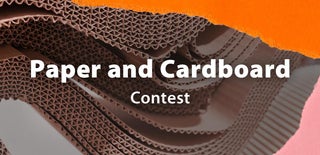Introduction: Mini Musical Tesla Coil Kit
I bought this small, inexpensive musical Tesla coil kit from Amazon for my son's school project. Fortunately I bought two so I could put one together first and make sure it worked before my son built his. I made a few mistakes on mine so I thought I would share.
This is a relatively simple project if you know how to solder thru hole components.
You will need:
- Soldering iron
- solder
- 15 - 24 volt, 2 amp DC power supply (a laptop computer power supply worked)
- Audio input device like a smartphone or MP3 player
Also helpful is a multmeter and a magnifying glass.
This instructable assumes you know how to solder through-hole components, and can identify basic electrical components.
This project uses household current so you must take appropriate safety precautions.
The heat sinks get hot with prolonged use. Use caution when handling after use.
When operating this device, or any other Tesla coil, do not put any other electronic devices unnecessarily close. This included pacemakers.
Step 1: Resistors
The first problem I ran into is the instructions. The English translation is not very helpful and had one important error.
There are 4 resistors. The English instructions that came with my kit shows R1 and R4 to be 2k and R2 and R5 10k but the Chinese instructions, the circuit diagram and the board say the opposite. The color code is wrong in the English directions as well. The 2k resistor is red, black, black, brown, brown (top pair)
The 10k resistor is brown, black, black, red brown (bottom pair).
Once you have identified the resistors, solder the10k resistors in R1 and R4 and the 2k resistors in R3 and R5.
Step 2: LEDs, Capacitors and Connectors
Solder the LEDs, capacitors, audio input, and power plug.
Make sure you are careful to place C1, the electrolytic capacitor, in the correct orientation.
Step 3: Don't Mix Up the Transistors!
On my first attempt I didn't realize the large transistors are different. These are attached to the heat sinks (radiators) with the thermal grease. I definitely needed a magnifying glass to read the faint print on these two items.
Test fit them in the board before you tighten the screws to the heat sink.
It might be tempting to solder the heat sink pegs to the PCB but don't. I tried that but learned that heat sinks actually work pretty well to conduct away heat! When I tried to remove them later to switch the transistor/MOSFET I had a very difficult time.
Step 4: The Coils
- The large coil needs to be attached to the board. You can use cyanoacrylate glue but hot glue worked better for me. The kit contains something that looks like a stick of hot glue but I didn't use this and can't vouch for it.
- When soldering the lead in the PCB, you need to remove fine coat of insulation. You can do this by light sanding or touch a flame to the wire to burn off the insulation.
- Solder the thick wire, (black or white in the illustrations but red in my kit) to the board as shown in the pictures. I believe the direction is important. Follow the illustration and coil it counter-clockwise when viewed from the top.
- Make sure this wire does not touch the coil. When I first plugged it in the wire it arced to the coil where they touched. There needs to be a gap between them.
- Last, use the supplied screws and pegs on each corner for legs.
When you plug it in you should get about a 1 cm spark at the tip of the wire that protrudes from the top of the coil. If you plug an audio source in, that spark reproduces the sound.
The instructions caution about prolonged use and heat buildup. We might try adding a fan if we plan to run it for more than a couple minutes at at time to help cool the transistors.










